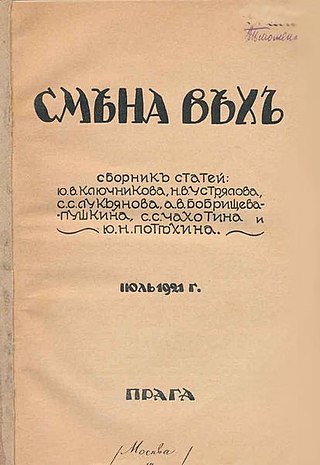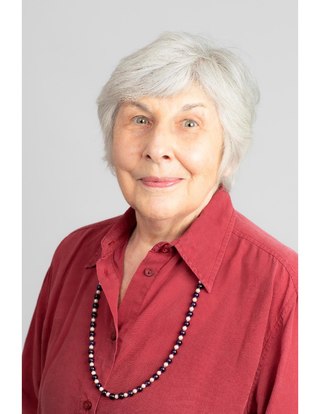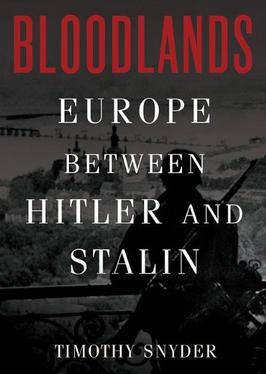Related Research Articles
Marxism–Leninism is a communist ideology that became the largest faction of the communist movement in the world in the years following the October Revolution. It was the predominant ideology of most socialist governments throughout the 20th century. Developed in Russia by the Bolsheviks, it was the state ideology of the Soviet Union, Soviet satellite states in the Eastern Bloc, and various countries in the Non-Aligned Movement and Third World during the Cold War, as well as the Communist International after Bolshevisation. Today, Marxism–Leninism is the ideology of the ruling parties of China, Cuba, Laos and Vietnam, as well as many other Communist parties. The state ideology of North Korea is derived from Marxism–Leninism. Marxist–Leninist states are commonly referred to as "communist states" by Western academics. Marxist–Leninists reject anarchism and left communism, as well as reformist socialism and social democracy. They oppose fascism and liberal democracy, and are self-proclaimed anti-imperialists. Marxism–Leninism holds that a two-stage communist revolution is needed to replace capitalism. A vanguard party, organized through democratic centralism, would seize power on behalf of the proletariat and establish a one-party socialist state, called the dictatorship of the proletariat. The state would control the means of production, suppress opposition, counter-revolution, and the bourgeoisie, and promote Soviet collectivism, to pave the way for an eventual communist society that would be classless and stateless.

The October Revolution, known in Soviet historiography as the Great October Socialist Revolution, was a revolution in Russia led by the Bolshevik Party of Vladimir Lenin that was a key moment in the larger Russian Revolution of 1917–1923. It was the second revolutionary change of government in Russia in 1917. It took place through an armed insurrection in Petrograd on 7 November 1917 [O.S. 25 October]. It was the precipitating event of the Russian Civil War.

The Black Book of Communism: Crimes, Terror, Repression is a 1997 book by Stéphane Courtois, Andrzej Paczkowski, Nicolas Werth, Jean-Louis Margolin, and several other European academics documenting a history of political repression by communist states, including genocides, extrajudicial executions, deportations, and deaths in labor camps and artificially created famines. The book was originally published in France as Le Livre noir du communisme: Crimes, terreur, répression by Éditions Robert Laffont. In the United States, it was published by Harvard University Press, with a foreword by Martin Malia. The German edition, published by Piper Verlag, includes a chapter written by Joachim Gauck. The introduction was written by Courtois. Historian François Furet was originally slated to write the introduction, but he died before being able to do so.

Timothy David Snyder is an American historian specializing in the history of Central and Eastern Europe, the Soviet Union, and the Holocaust. He is the Richard C. Levin Professor of History at Yale University and a permanent fellow at the Institute for Human Sciences in Vienna.
Eurasianism is a socio-political movement in Russia that emerged in the early 20th century which states that Russia does not belong in the "European" or "Asian" categories but instead to the geopolitical concept of Eurasia governed by the "Russian world", forming an ostensibly standalone Russian civilization. Historically, the Russian Empire was Euro-centric and generally considered a European/Western power.

The Smenovekhovtsy, a political movement in the Russian émigré community, formed shortly after the publication of the magazine Smena Vekh in Prague in 1921. This publication had taken its name from the Russian philosophical publication Vekhi ("Signposts") published in 1909. The Smena Vekh periodical told its White émigré readers:
"The Civil War is lost definitely. For a long time Russia has been travelling on its own path, not our path ... Either recognize this Russia, hated by you all, or stay without Russia, because a 'third Russia' by your recipes does not and will not exist ... The Soviet regime saved Russia - the Soviet regime is justified, regardless of how weighty the arguments against it are ... The mere fact of its enduring existence proves its popular character, and the historical belonging of its dictatorship and harshness."
Alexander Rabinowitch is an American historian. He is Professor Emeritus of History at the Indiana University, Bloomington, where he taught from 1968 until 1999, and Affiliated Research Scholar at the St. Petersburg Institute of History, Russian Academy of Sciences, since 2013. He is recognized internationally as a leading expert on the Bolsheviks, the Russian Revolution of 1917, and the Russian Civil War.
Communism is a left-wing to far-left sociopolitical, philosophical, and economic ideology within the socialist movement, whose goal is the creation of a communist society, a socioeconomic order centered around common ownership of the means of production, distribution, and exchange that allocates products to everyone in the society based on need. A communist society would entail the absence of private property and social classes, and ultimately money and the state. Communists often seek a voluntary state of self-governance but disagree on the means to this end. This reflects a distinction between a more libertarian approach of communization, revolutionary spontaneity, and workers' self-management, and a more authoritarian vanguardist or communist party-driven approach through the development of a socialist state followed by the withering away of the state.
Ronald Grigor Suny is an American historian and political scientist. Suny is the William H. Sewell Jr. Distinguished University Professor of History at the University of Michigan and served as director of the Eisenberg Institute for Historical Studies, 2009 to 2012 and was the Charles Tilly Collegiate Professor of Social and Political History at the University of Michigan from 2005 to 2015, and is Emeritus Professor of political science and history at the University of Chicago.

Sheila May Fitzpatrick is an Australian historian, whose main subjects are history of the Soviet Union and history of modern Russia, especially the Stalin era and the Great Purges, of which she proposes a "history from below", and is part of the "revisionist school" of Communist historiography. She has also critically reviewed the concept of totalitarianism and highlighted the differences between Nazi Germany and the Soviet Union in debates about comparison of Nazism and Stalinism.

Bloodlands: Europe Between Hitler and Stalin is a 2010 book by Yale historian Timothy D. Snyder. It is about mass murders committed during World War II in territories controlled by Nazi Germany and the Soviet Union.
Josip "Jozo" Tomasevich was an American economist and military historian. He was professor emeritus at San Francisco State University.
This is a select bibliography of post World War II English language books and journal articles about the Revolutionary and Civil War era of Russian (Soviet) history. The sections "General Surveys" and "Biographies" contain books; other sections contain both books and journal articles. Book entries may have references to reviews published in English language academic journals or major newspapers when these could be considered helpful. Additional bibliographies can be found in many of the book-length works listed below; see Further Reading for several book and chapter length bibliographies. The External Links section contains entries for publicly available select bibliographies from universities.
This is a select bibliography of post World War II English language books and journal articles about Stalinism and the Stalinist era of Soviet history. Book entries have references to journal reviews about them when helpful and available. Additional bibliographies can be found in many of the book-length works listed below.
This is a select bibliography of English language books and journal articles about the post-Stalinist era of Soviet history. A brief selection of English translations of primary sources is included. The sections "General Surveys" and "Biographies" contain books; other sections contain both books and journal articles. Book entries have references to journal articles and reviews about them when helpful. Additional bibliographies can be found in many of the book-length works listed below; see Further Reading for several book and chapter-length bibliographies. The External Links section contains entries for publicly available select bibliographies from universities.

Below is a list of post World War II scholarly books and journal articles written in or translated into English about communism. Items on this list should be considered a non-exhaustive list of reliable sources related to the theory and practice of communism in its different forms.
This is a select bibliography of English language books and journal articles about the Soviet Union during the Second World War, the period leading up to the war, and the immediate aftermath. For works on Stalinism and the history of the Soviet Union during the Stalin era, please see Bibliography of Stalinism and the Soviet Union. Book entries may have references to reviews published in English language academic journals or major newspapers when these could be considered helpful.
Michael David-Fox is an American historian who studies modern Russia and the Soviet Union.

This is a select bibliography of English-language books and journal articles about the history of Ukraine. Book entries have references to journal reviews about them when helpful and available. Additional bibliographies can be found in many of the book-length works listed below. See the bibliography section for several additional book and chapter-length bibliographies from academic publishers and online bibliographies from historical associations and academic institutions.
This is a select bibliography of English language books and journal articles about the history of Belarus and Byelorussia. A brief selection of English translations of primary sources is included. Book entries have references to journal articles and reviews about them when helpful. Additional bibliographies can be found in many of the book-length works listed below; see Further Reading for several book and chapter-length bibliographies. The External links section contains entries for publicly available select bibliographies from universities.
References
- ↑ "Amir Weiner". CREES. Center for Russian, East European and Eurasian Studies. Retrieved 27 November 2021.
- ↑ "Amir Weiner". Wilson Center. Woodrow Wilson International Center for Scholars. Retrieved 27 November 2021.
- ↑ Weiner, Amir (14 April 2002). Making Sense of War: The Second World War and the Fate of the Bolshevik Revolution. Princeton University Press. ISBN 9780691095431 . Retrieved 27 November 2021.
- ↑ Weindling, Paul (1 June 2006). "Amir Weiner, Landscaping the Human Garden: Twentieth‐Century Population Management in a Comparative Framework". The Journal of Modern History. University of Chicago Press. 78 (2): 476–478. doi:10.1086/505816. ISSN 0022-2801.
- ↑ Weiner, Amir (29 May 2003). Landscaping the Human Garden: Twentieth-Century Population Management in a Comparative Framework (1st hardcover ed.). Stanford University Press. ISBN 9780804746229 . Retrieved 27 November 2021.
- ↑ "Amir Weiner". Department of History. Stanford University. Retrieved 27 November 2021.
- ↑ Weiner, Amir (January 2002). "The Black Book of Communism: Crimes, Terror, Repression (review)". Journal of Interdisciplinary History. MIT Press. 32 (3): 450–452. doi:10.1162/002219502753364263. JSTOR 3656222. S2CID 142217169 . Retrieved 27 November 2021– via Project MUSE.
- ↑ Weiner, Amir (15 December 2012). "Timothy Snyder, Bloodlands". Cahiers du monde russe. Russie – Empire russe – Union soviétique et États indépendants. Editions de l'E.H.E.S.S. (53/54). doi: 10.4000/monderusse.7904 . ISSN 1252-6576 . Retrieved 27 November 2021– via OpenEdition Journals.